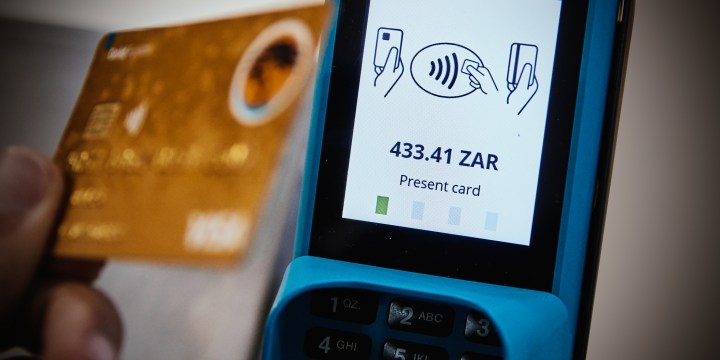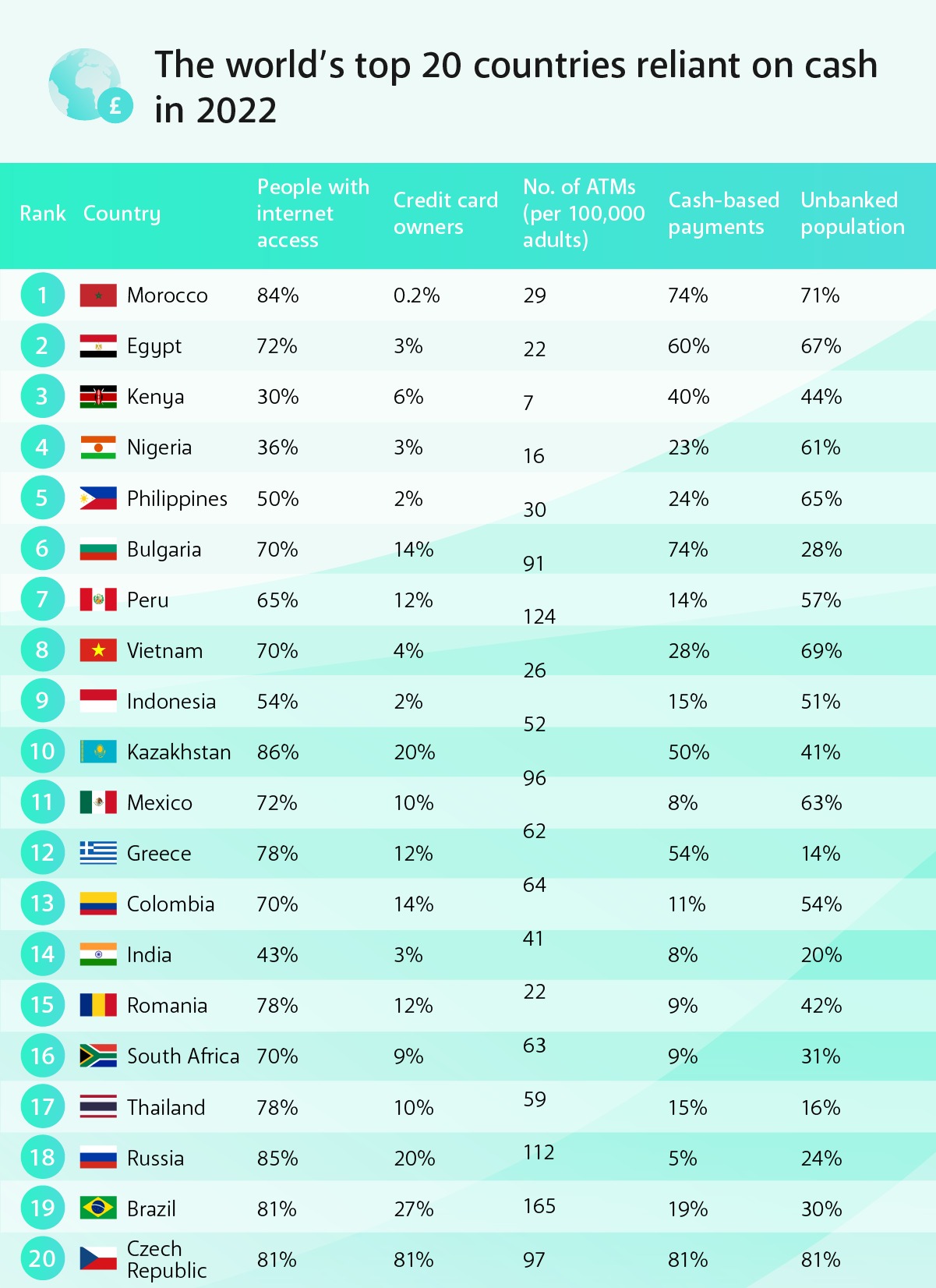LEGAL TENDER
Woolworths cafés going cashless? Cash no longer king as merchants are within their rights to refuse it

A Woolworths poster proclaiming that its cafés would go cashless has stirred debate on social media, with some people threatening to boycott its stores. The retailer is hardly trying something revolutionary though: The times are a-changin’.
Cash might be legal tender but the South African Reserve Bank (Sarb) says merchants are not obliged to accept cash. And customers can always vote with their wallets.
The Sarb has responded to the minor flap on social media caused by a Woolworths poster stating that its WCafés would stop accepting cash payments from 16 January for security and convenience reasons.
The WCafé brand is a chain of coffee shops operated either inside or adjacent to Woolworths stores in select outlets.
The retailer has clarified that this would only affect its cafés — not payments at its supermarket tills.
A spokesperson said certain WCafés have been experimenting with cashless systems for a while, and various WCafés will soon accept card and digital payments only.
“We trialled this initiative before rolling it out and saw positive feedback from customers. Before each WCafé goes cashless, signage will inform customers of the move to cashless in the weeks leading up to the change.
“The WCafé team will continue to monitor the progress of this shift over the coming months.
“It’s important to note that this applies to certain WCafés only. Customers will still be able to pay for food, fashion, beauty and home purchases with cash if they choose.”
Money’s money
The poster stirred debate about whether or not merchants are permitted to refuse cash as it’s legal tender in South Africa. Some suggested that declining cash is ageist and even unconstitutional.
Not so – the Sarb says merchants can use their discretion on accepting cash payments and it’s up to the customer to make an informed decision about whether they want to support the business.
A spokesperson told Daily Maverick that banknotes and coins are legal tender as issued by the Sarb, and while it promotes and encourages the use of cash in a safe and efficient manner, “businesses, based on risk management principles and other considerations, can exercise their discretion on whether to accept cash or not”.
The WCafés are following a trend: in South Africa, Shoprite’s first cashierless store, Checkers Rush, was launched in 2021, three years after the retailer suffered 489 armed robberies in a year, reported Techcentral.
Last year, Checkers opened the first of its Uniq clothing stores, announcing payments would only be done through contactless channels — and without tellers.
The OK Urban concept store in Sonstraal in Cape Town’s northern suburbs launched in August last year and also operates cashless, offering a range of payments from Visa, Mastercard, Amex, Diners Club, Tap-and-go, and more.
Also read: Sit, stay — Woolworths enters the pet care business
Cashing out
The use of cash has been declining for years, accelerated by the pandemic as customers turned to card payments and digital transactions instead.
The top five countries closest to a cashless society are Norway, Finland, New Zealand, Hong Kong and Sweden, which is yet to reach the target it had set for a cashless society by 2023, says British payment information company, Merchant Machine.
Nordic countries lead the way for cashless payments.
Data from Statista, released in March last year, shows close to 96% of the Norwegian population had access to online banking sites, making Norway the country with the strongest internet banking penetration in Europe, followed by Iceland and Finland.
Norway also has one of the lowest physical cash rates in the world, with less than 5% of point-of-sale transactions paid for in cash.
Sweden — the first European country to issue banknotes — appears set to be one of the first to get rid of cash, legally. It’s regarded as the poster child of cashless countries. Merchants can refuse cash payments in Sweden and most banks don’t handle cash transactions in-branch any longer. ATMs are rare, with only 32 per 100,000 people.
In 2023, cash was used in only about 13% of all retail payments in Sweden, Statista says, basing its estimations on available data on cash withdrawals and payment transactions.
Finland, too, is on a path to cashlessness, with the Bank of Finland predicting that the country will be cashless by 2030.
Elsewhere, Hong Kong is heading towards a near-cashless society, with forecasting from the Financial Services Development Council of Hong Kong predicting that cash will account for no more than 1.6% of point-of-sale transactions by 2024.
In the UK, a survey by software recommendation engine Capterra showed more than half of UK consumers use digital wallets because of convenience, while 48% who use digital wallets regularly use them to store plane, train, or bus tickets. A third uses them to store event tickets or loyalty cards.
The world’s most cash-reliant country? Merchant Machine data says Morocco relies the most on cash – South Africa is in 16th place.

The world’s most cash-reliant countries. (Photo: Merchant Machine)
The shift to cashlessness remains tricky for South African retailers, says Pick n Pay’s Deven Moodley, executive head for its Value-Added Services, Financial Services and Mobile division.
He says PnP recognises that there are substantial benefits to moving to a cashless society, with security being top of mind, which is why they have introduced diverse payment methods catering for customers opting for cashless transactions, including digital payment options such as tap, QR and crypto payments.
“A transition to a completely cashless retail environment in South Africa now, however, faces barriers as many economically active customers remain unbanked or lack access to digital payment mechanisms.
“There are also income segments that prefer cash and are unlikely to make the transition at this stage; this will come with generational shifts and improved service offerings and education around these.”
Moodley said they recognise that the shift to a cashless society will continue to evolve, and that they are committed to driving financial inclusion and giving customers safer ways to make payments at lower costs.
“For example, as part of our role in encouraging more South Africans to transition to affordable banking, we continue to offer the lowest rates for cash deposits and withdrawals at our tills (when compared with using an ATM or bank branch).” DM



















Personally hardly ever use cash and can’t see a reason for it to be used at all.
First job as a teller was dreadful and was put off for life. Cash is dirty! (in many ways…)
Not all South Africans are in the same position as you. I agree it’s a process, but, overall, a good development for many reasons.
Do you think car guards should go cashless and get Yoco?
i have seen car cguards with snapscan/zapper. simple, quick, effective. yoco could be another option.
Unfortunately, the interesting data tables in the article became immediately useless when looking at them. In the first table it was still a little amusing to see that Hong Kong, NZ and Singapore are European countries. But we could have just assumed a minor typo and believe the data to be correct. When in the second table the Czech Republic features as a top 20 country reliant on cash with an alleged 81% unbanked population, the entire table became useless.
I also though I had gone cross eyed looking at that table
Concerts and other entertainment (markets etc.) have gone cashless – most people use store cards for retail, so it is merely an evolution in payment and not an infringement on our rights.
This is the start towards the Central Bank Digital Currency (CBDC) and people have yet to realise the dangers of having a cashless society where those in authority can control your money, limited where you can spend it on what or withhold it so you have no access to your money if you are perceived to be against the ruling party’s narrative.
Governments have long recognized that freezing someone’s financial resources is one of the most effective ways to lock them out of society. However, a CBDC could make the process easier and faster for governments by establishing a direct line between citizens and the government itself.
It is already happening in parts of China where for example even your travel can be restricted by not allowing you to buy a ticket on a train or plane.
CBDCs would give the government virtually complete control over the monetary system… but from an individual’s perspective, a CBDC would be a historic blow to privacy and individual liberty. There are many dangers in going towards a cashless society that need to be understood by the people who will be at risk.
Thanks. Both insightful and concerning.
Why is it Woolworths that always get the flack? The article points out that Checkers started going this way two or three years ago. Does anybody recall an outburst on social media then? Exactly.
I think the real point here is that Woolworths are thought to be a bit woke, a bit too LGBT friendly, a bit too un-Christian, and so some folks will jump up and down any time Woolworths do anything bar reducing the price on the chicken nuggets.
If banks are going to rake in commission on every single sale in the country from both merchant and customer they need to up their game for protection of the poor. For example the tap facility that allows large withdrawals with no pin is entirely unnecessary but would be a huge risk for grant dependants. The cost to merchant could also be reduced. Why should a spaza shop lose about 3% of its income with the temptation to raise prices to cover this? The merchant agreements forbid charging more to card users currently. I’ve noticed how little I used cash last year. My local bank branch now only offers advice etc and no cash counters. But the queues are extra long as people have to use digital platforms with associated issues to unravel. So more and faster interfaces with bank assistance will be important as we go cashless too. The money saved on CIT security and Atms could be used to improve service.
Most people I know in the UK only have a pound coin on there possession for supermarket trollies. I have forgotten what physical money even looks like.
What am I supposed to do with all this stuff in my sofa?
We have indeed seen some problems in the process of China becoming cashless, such as a safer society. Robbery and theft have become aimless because of cashlessness; more transparent taxation has made it faster and more convenient for the country to deal with financial problems. Improve administrative efficiency; obtain public services more efficiently, etc. This is for China, and for less developed countries in Africa, it is best to have two parallel systems operating together. In areas with a large concentration of foreigners: Go cashless as soon as possible this morning. In areas where local life is relatively concentrated: continuing to use cash for transactions is the best choice to safeguard human rights in South Africa.
Be careful what we wish for. Going cashless gives the banks and governments total control of your money. If they don’t like what you are doing they will simply freeze your accounts and you will suffer. Cash is still king and we should advocate to keep cash as legal tender. It gives us freedom from the banks and governments controlling us. They are pushing the world towards a cashless society in order to become more totalitarian and suppress the rights of citizens. Be careful what we wish for.